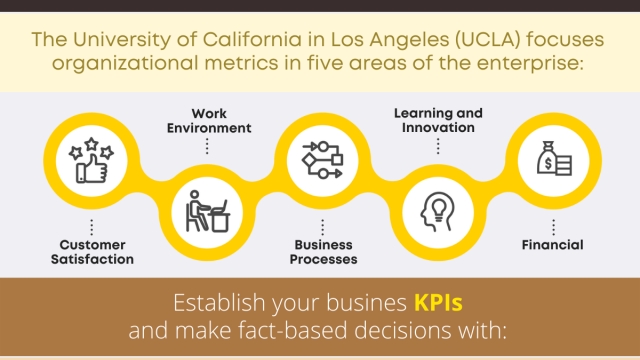
Welcome to the world of Key Performance Indicators (KPIs), where success is unlocked through the mastery of effective measurement. In today’s competitive business landscape, organizations strive for continuous improvement and heightened performance, making KPIs an invaluable tool for monitoring progress and driving strategic decision-making. By providing a quantitative framework for evaluating performance against objectives, KPIs offer insights into what is working well, what needs improvement, and the overall health of an organization or project.
Key Performance Indicators are measurable metrics that serve as indicators of progress towards critical goals. They enable organizations to set clear targets, track performance, and drive accountability at various levels, including individual, team, department, and company-wide. By focusing on relevant metrics that align with business objectives and strategies, KPIs provide a holistic view of performance, enabling informed decision-making and effective resource allocation.
However, harnessing the true power of KPIs requires more than just selecting a few metrics at random. It demands a thoughtful and strategic approach, involving careful consideration of factors such as industry benchmarks, historical data, and the specific objectives of an organization. Once the appropriate KPIs are defined and implemented, organizations can leverage them to gain actionable insights, identify areas for improvement, and ultimately boost overall performance.
In this article, we delve into the world of Key Performance Indicators, exploring their significance, types, and best practices for successful implementation. We will examine how different industries can utilize KPIs to drive success, uncover the common pitfalls to avoid, and highlight real-world examples of organizations that have mastered the art of KPI measurement. So, whether you’re an executive seeking to monitor the health of your business or an individual looking to enhance your own performance, join us as we unlock the path to success through the mastery of Key Performance Indicators.
Understanding Key Performance Indicators
In the world of business, Key Performance Indicators (KPIs) are crucial tools for measuring and tracking the progress of an organization. KPIs provide valuable insights into the performance and effectiveness of different areas within a company. By setting and monitoring these indicators, businesses are able to align their goals, make informed decisions, and drive success.
KPIs can vary depending on the objectives and nature of a business. For instance, in sales and marketing, KPIs may include metrics such as customer acquisition rate, conversion rate, and revenue growth. On the other hand, operational KPIs might focus on factors like production efficiency, inventory turnover, or employee productivity.
The beauty of KPIs lies in their ability to provide a clear vision of how well a company is performing in specific areas. By setting relevant KPIs, organizations can ensure they are on track to achieve their targets and make necessary improvements if needed. KPIs act as guiding lights, allowing businesses to identify strengths, weaknesses, and areas that require attention or optimization.
To leverage the power of KPIs effectively, organizations must define their goals and objectives clearly. These goals should be specific, measurable, attainable, relevant, and time-bound (SMART), ensuring that KPIs are aligned with the overall vision and strategy. Regular monitoring and analysis of KPIs will provide valuable insights that can drive actions and ultimately lead to improved performance and success.
Remember, KPIs are not set in stone. As business environments change and evolve, organizations may need to adapt their KPIs accordingly. By regularly reviewing and redefining these indicators, companies can stay agile and responsive, keeping pace with market demands and maintaining a competitive edge.
The next sections of this article will dive deeper into specific types of KPIs, their importance across different industries, and strategies for effectively utilizing them. Stay tuned to unlock the secrets of mastering Key Performance Indicators and driving success in your business.
Selecting and Defining Effective KPIs
When it comes to unlocking success, one of the crucial steps is selecting and defining effective Key Performance Indicators (KPIs). These KPIs serve as the measurable metrics that align with the objectives and goals of an organization. By carefully selecting and defining these indicators, businesses can track their progress and make informed decisions to drive their performance forward.
The first step in selecting effective KPIs is understanding the specific goals and objectives a business wants to achieve. By clearly defining these goals, businesses can align their KPIs accordingly. Whether it’s increasing sales, improving customer satisfaction, or enhancing operational efficiency, each goal may have specific metrics that are important to track.
Next, it is essential to consider the relevance and measurability of each potential KPI. The selected indicators should directly reflect the performance of the desired goal and be quantifiable. For example, if the goal is to increase sales, a relevant and measurable KPI could be the monthly revenue growth percentage. This metric provides a clear and objective measurement of the progress towards the goal.
Furthermore, it is vital to ensure that the selected KPIs are actionable and within control. Effective KPIs should provide insights that can drive actionable steps to improve performance. Therefore, businesses must assess whether they have the necessary resources and capabilities to influence the outcomes of the chosen indicators. This ensures that KPIs are not only meaningful but also within the organization’s control to make necessary changes if required.
In conclusion, selecting and defining effective KPIs is a fundamental aspect of unlocking success within any organization. By aligning these measurable metrics with specific goals, evaluating their relevance and measurability, and ensuring actionability, businesses can track their progress and make informed decisions to drive overall performance. Strategic selection and definition of KPIs lay the groundwork for monitoring key areas of success.
Utilizing KPIs to Drive Success
When it comes to achieving success, Key Performance Indicators (KPIs) play a vital role. These indicators provide businesses with valuable insights into their performance, allowing them to make informed strategic decisions. By effectively utilizing KPIs, organizations can set clear objectives, measure progress, and drive continuous improvement.
One of the primary benefits of implementing KPIs is the ability to track performance over time. By establishing specific metrics that align with organizational goals, businesses can monitor their progress and identify areas that require improvement. This data-driven approach enables companies to make proactive adjustments and optimize their operations for success.
In addition to tracking progress, KPIs also facilitate goal-setting and performance management. By clearly defining objectives and assigning relevant KPIs, businesses can ensure that everyone is working toward a common vision. This promotes accountability, empowers employees, and fosters a culture of excellence.
Furthermore, utilizing KPIs allows businesses to identify trends and patterns within their operations. By analyzing data and identifying correlations, organizations can gain valuable insights into what drives success. This knowledge can then be used to refine strategies, allocate resources efficiently, and capitalize on opportunities.
In summary, KPIs are invaluable tools for driving success in any organization. By setting clear objectives, tracking progress, and analyzing data, businesses can leverage these indicators to make informed decisions and continuously improve their performance. When utilized effectively, KPIs can unlock the path to achieving and surpassing organizational goals.


